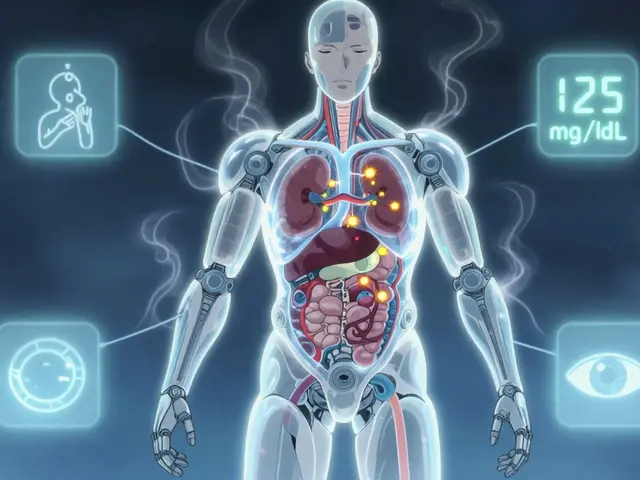Lack of enzymes: signs, causes, tests and simple fixes
Missing digestive enzymes can quietly ruin your day — bloating, gas, loose stools, or constant fatigue after meals are common. If food feels heavy, or you can't tolerate dairy, starches, or certain fruits, enzymes might be the issue. This page explains what enzyme shortages look like, how doctors test for them, and practical steps you can try now.
What causes enzyme shortages? The most common is lactase deficiency, which makes dairy hard to digest. Chronic pancreatitis, cystic fibrosis, and some surgeries can reduce pancreatic enzyme production, causing fat and protein malabsorption. Rare conditions like sucrase‑isomaltase deficiency affect sugar breakdown. Certain medications and long‑term gut infections can also lower enzyme activity.
Usual symptoms to watch for
Bloating, frequent gas, greasy stools that float, and unexpected weight loss point toward poor digestion of fats. If dairy gives you cramps, diarrhea, or nausea within an hour, lactase deficiency is likely. Trouble digesting starchy foods or sweet fruits can signal other enzyme problems. Feeling weak or anemic despite eating well may mean you’re not absorbing nutrients.
How problems are diagnosed
Doctors use a mix of history, simple tests, and sometimes imaging. A hydrogen breath test helps detect lactose or fructose problems. Blood tests can show nutrient gaps like low vitamin D or iron. Stool tests can measure pancreatic elastase to detect pancreatic insufficiency. In complex cases, your doctor may suggest an endoscopy with biopsies or genetic testing for inherited enzyme defects.
What can you do right now? First, track symptoms and food triggers for two weeks. Cut suspected foods briefly to see if you improve — for example, remove dairy for a week and note changes. Over‑the‑counter lactase pills or dairy‑free milk often fix lactose issues quickly. For pancreatic problems, prescription pancreatic enzyme replacement therapy (PERT) is standard; your doctor will dose it to match meals.
Digestive enzyme supplements are popular, but quality varies. Look for products that list enzyme types and units (like lipase, protease, amylase). Talk to your pharmacist or doctor before starting supplements, especially if you take other medicines. Improving gut health helps too: treat chronic infections, avoid unnecessary antibiotics, and eat small, balanced meals with fiber and healthy fats.
When to see a doctor: get medical help if you have unexplained weight loss, persistent oily stools, severe abdominal pain, or signs of malnutrition. These symptoms can mean serious nutrient loss that needs medical treatment. A targeted diagnosis gets you the right therapy faster and prevents long‑term problems.
Try small, frequent meals and chew food well to reduce enzyme demand. Include enzyme‑rich foods like fresh pineapple (bromelain) or papaya (papain) in meals, but don't rely on them if you have severe malabsorption. Always check with your doctor before using enzymes during pregnancy, breastfeeding, or when taking blood thinners. Take notes daily.
Finally, enzyme issues are common and often treatable. With a few tests and the right plan — diet changes, supplements, or prescription enzymes — most people feel much better within weeks.






